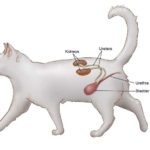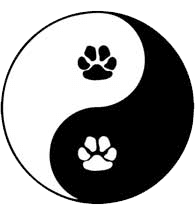
Chronic kidney failure is a degenerative disease where the kidneys gradually begin to lose functional tissue over time. Once the loss of functional kidney tissue reaches 75% the patient beings to experience the affects of the disease with the kidneys now being compromised in their ability to effectively perform one of their key functions to eliminate toxins from the body. This condition, also known as chronic renal failure, is very common in cats and dogs representing the number 1 cause of death in cats and the number 4 cause of death in dogs.
I have been beating the drum of early disease detection in senior dogs and cats (aged 8 years or older) with a yearly well visit to go beyond routine examination, parasite screening, and immunizations to also include yearly senior wellness blood work. This is especially important with chronic renal failure since so much can be done to extend the life and maintain the quality of life of patients afflicted with this disease and this is especially true when caught early.
The main approach managing chronic renal failure in cats and dogs as it has been for the past 25 years remains diet. The first step in the management of chronic renal failure is feeding a prescription diet that is sodium restricted, phosphorus restricted, and restricted in overall protein intake as a percentage of dietary crude nutrients. On the latter aspect, the primary waste product of protein metabolism is ammonia. Under normal circumstances, ammonia is converted by the liver to a less harmful form called urea which is then eliminated by the kidneys via the urine.
In chronic renal failure, the kidneys lack the ability to effectively eliminate urea so it accumulates in the body and once it reaches a certain threshold it undergoes a reverse reaction to ammonia and intoxicates the patient. However, it is important to note that in cutting protein with prescription renal diets, we do not create protein deficiencies, since the protein in these diets is of high biological value, that is, the majority is utilized by the body and very little is excreted as waste.
Stem cell therapy
Stem cells are in a cellular class called progenitor cells. They can differentiate into any tissue cell type, thereby having an enhanced ability to repair damaged tissues at the cellular level. Early evidence to come out of ongoing kidney failure stem cell therapy research at Colorado State University College of Veterinary Medicine suggests significant benefit for treatment of chronic renal failure in cats. Stem cell company Tithon Animal Services is also publishing ongoing case studies with positive results for stem cell therapy for dogs with chronic renal failure. Please refer to my article below on stem cell therapy for chronic renal failure:
Class IV Therapy Laser
Therapy laser facilitates healing by a process known as photobiomodulation. Photobiomodulation is created by low level photons that are infused into tissue via a class IV laser that stimulates dilation of blood vessels and lymphatic vessels that for renal failure accomplishes some key benefits for kidneys afflicted with chronic renal failure.
- Dilating arteries increases blood perfusion to the kidneys that is rich in oxygen and brings protective and healing cells to damaged tissue.
- Dilating veins and lymphatic vessels drains inflammatory debris, and hastens the removal less oxygenated blood from tissues.
Fluid Therapy With High Dose B12 & B Complex Vitamins
B12 and B-complex vitamins are powerful antioxidants that are pivotal in removing damaging free radicals in the body that are generated during times, stress, inflammation, and chronic disease. As a result, they help to protect and heal tissue and organ systems while stimulating appetite. These vitamins also provide vital functions to cells to maintain intracellular steady state metabolism and serve as important co-factors and catalysts for biochemical reactions within the cells. The result is maximized health at the cellular level which translates to healthier tissues and organ systems.
Treatment is for three days for 8 hours per day, increasing B12 and B-complex doses by 30% each day.
Dr. Roger Welton is a practicing veterinarian and highly regarded media personality through a number of topics and platforms. In addition to being passionate about integrative veterinary medicine for which he is a nationally recognized expert, Dr. Welton was also an accomplished college lacrosse player and remains to this day very involved in the sport. He is president of Maybeck Animal Hospital , runs the successful veterinary/animal health blogs Web-DVM and Dr. Roger’s Holistic Veterinary Care, and fulfills his passion for lacrosse through his lacrosse and sport blog, The Creator’s Game.
